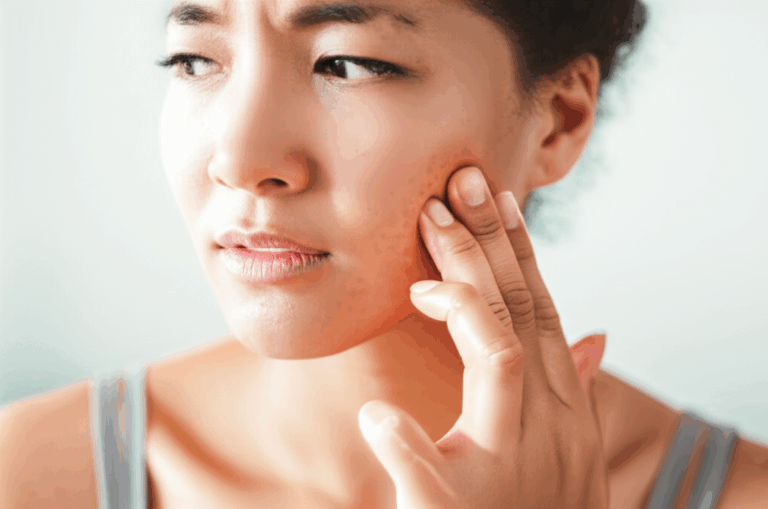
Can Dental Problems Cause Ear Problems? Understanding the Dental-Ear Connection and When to Take Action
Ever get an earache, but nothing seems wrong with your ear? Maybe your doctor checked you out, couldn’t see anything odd, and told you everything looked okay. That can be pretty annoying! But guess what? It might not be your ears—it could be something with your teeth or jaw. Dental problems are often a hidden reason for ear pain, and many people don’t realize it.
If you or someone you know is thinking, “Could my teeth really make my ear hurt?”, you’re in the right spot. This super-friendly guide will show you how your teeth and ears are linked, point out the main reasons this happens, help you spot the warning signs, and give you easy steps to start feeling better and keep both your mouth and ears happy.
Table of Contents
- The Surprising Link: Why Your Teeth and Ears “Talk”
- The Science, Simply Explained: How the Mouth, Jaw, and Ear Are Connected
- Top Dental Problems That Trigger Ear Pain
- How to Recognize Dental-Related Ear Pain
- Who to See: Dentist, ENT—or Both?
- Your Treatment Options Made Simple
- Protecting Your Smile and Ears: Prevention Tips
- Key Takeaways and Next Steps
The Surprising Link: Why Your Teeth and Ears “Talk”
Think about this: You take a bite of cold ice cream, and suddenly a sharp pain travels right from your tooth to your ear. Or maybe you wake up after a night of grinding your teeth and feel a dull, annoying earache—no ear drops seem to help.
Sound familiar? Some studies say around 70% of people who go to an ear, nose, and throat (ENT) doctor for ear pain find out the real problem is actually in their mouth or jaw.
It’s not just luck or being unlucky. Your teeth, jaw, and ears are all connected by the same nerves and muscles. Sometimes, when your body feels pain in these close parts, it confuses where the pain is coming from—so your ear hurts when it’s actually your teeth.
Bottom line: Dental problems can hide as earaches. Figuring out when it’s your teeth (not your ear) saves you time and pain.
The Science, Simply Explained: How the Mouth, Jaw, and Ear Are Connected
Let’s take a simple look at what’s going on inside your head.
Shared Nerve Pathways: Like a Set of Connected Wires
The main nerve is called the trigeminal nerve. Think of it as a main wire that sends messages to your teeth, jaw, gums, cheeks, and parts of your ear and face. If something’s wrong with your tooth or jaw, your brain sometimes mixes up the signal, so you feel it as ear pain.
Easy Example:
Think about your house’s wiring. Sometimes, flipping a switch in the kitchen can turn off a light in the living room if they share a wire. That’s kind of how mouth pain can cause ear pain.
Close Neighbors: The Jaw Joint (TMJ) and Ear
Your temporomandibular joint (TMJ) is like a small hinge in front of each ear that connects your jaw to your head. When something bothers this joint—like jaw clenching or injury—it can quickly make your ear hurt, too, because they’re so close together.
Inflammation That Spreads
Infections or swelling in your teeth or gums (like from an abscessed tooth) can make the area nearby sore and swollen, including places near the ear. The pain can move up to the ear by using the same nerves or swollen lymph nodes.
The main point: Your mouth, jaw, and ear all share nerves and muscles, and they’re close together. If something bothers one, it can easily bother the others too.
Top Dental Problems That Trigger Ear Pain
Let’s look at the most common tooth and jaw problems that can make your ear hurt. See if any of these sound like you.
- Temporomandibular Joint (TMJ) Disorders
What is it?
Trouble with the jaw joint (TMJ) or the muscles around it.
How does it bother your ear?
The TMJ sits just in front of your ear. If it gets sore—from stress, jaw clenching, injury, or an uneven bite—it can cause:
- Deep, aching pain in the ear or side of the head
- Popping or clicking near the ear
- Trouble hearing clearly
- Ringing in the ears
- Sometimes feeling a bit dizzy or off balance
Did you know? Up to 12% of people have TMJ problems at some point, and lots of them feel it mainly in the ear.
- Bruxism—Teeth Grinding and Jaw Clenching
What is it?
Clenching or grinding your teeth, often while sleeping or when stressed.
How does it bother your ear?
Clenching puts extra pressure on your jaw and TMJ. This makes those areas hurt and might send pain to your ear. Common symptoms:
- Sore jaw and ear
- Pain is usually worse in the morning
- No signs of ear infection
Fact: Clenching or grinding can make your jaw work 6 times harder than usual.
- Impacted Wisdom Teeth
What is it?
Wisdom teeth that get stuck and can’t come in all the way.
How does it bother your ear?
Pushing or inflammation from these teeth or any infection around them can send sore signals to your ear. You might notice:
- Pain going from the back of your jaw to your ear
- Swelling or sore gums near your back teeth
- Trouble opening your mouth wide
- Dental Abscesses and Infections
What is it?
A pocket of pus in your tooth or gums from infection.
How does it bother your ear?
The swelling and pressure can move up the nerves to your ear, causing:
- Throbbing pain in the jaw and ear
- Fever or a puffy face
- Sometimes, ear pain goes away right after the dentist treats your tooth
- Deep Cavities and Tooth Decay
What is it?
A hole in your tooth goes deep enough to reach the nerve.
How does it bother your ear?
The pain can shoot up to your ear along shared nerves. The pain can be dull or sharp and doesn’t get better with normal ear treatments.
- Cracked or Fractured Tooth
What is it?
A tooth has a crack or chip.
How does it bother your ear?
If the inside of the tooth is open, pain from chewing or hot/cold things can travel to your ear.
- Misaligned Bite (Malocclusion)
What is it?
Your teeth don’t line up right, causing uneven chewing.
How does it bother your ear?
As the jaw joint and muscles get tired, pain can settle in your ear too and cause clicking or tightness.
Table: Quick Guide to Dental Causes of Ear Pain
| Problem | Main Signs | How It Hurts the Ear |
|---|---|---|
| TMJ Disorders | Jaw pain, popping, headaches | Aching ear, fullness, ringing |
| Bruxism | Jaw sore (worse in morning) | Ear pain, headache |
| Impacted Wisdom Teeth | Swelling, pain in back teeth | Pain going to the ear |
| Dental Abscess/Infection | Throbbing, swollen gums/face | Sudden ear pain, fever |
| Deep Cavities | Tooth pain, sensitive teeth | Dull/sharp ache in ear |
| Cracked Tooth | Sharp pain chewing, hot/cold | Ear zings when biting |
| Misaligned Bite | Jaw tired, uneven teeth | Earache, jaw tightness |
How to Recognize Dental-Related Ear Pain
Trying to figure out if your ear pain starts in your mouth? Here’s a quick checklist:
- Jaw pain, stiffness, or soreness (especially when eating, yawning, or talking)
- Clicking, popping, or grinding sounds in your jaw
- Pain or sensitivity in certain teeth (hurts more if you press on them)
- Headaches at your forehead or temples
- Pain gets worse at night, after talking a lot, or moving your jaw
- No regular ear infection signs
- No yellow or green stuff coming from your ear
- Ear exam looks normal
- Hearing is fine, but may feel blocked or muffled
If you checked off a few of these, the pain is probably from your teeth or jaw, not your ear.
Who to See: Dentist, ENT—or Both?
Step 1: Make Sure It’s Not an Ear Problem First
If you have a fever, hearing loss, stuff coming out of your ear, or you often get ear infections, see your family doctor or an ENT doctor first. They’ll check for ear infections, wax, or something stuck in there.
Step 2: Still Hurting? Time for the Dentist
If your ear looks fine and you have jaw or tooth pain, go see your dentist. Dentists can find gum disease, cavities, bite problems, cracked teeth, or jaw joint issues that often send pain to the ear.
Step 3: Sometimes You Need Both
If you have a jaw problem or infection that’s not easy to figure out, you might need to see both the dentist and ENT. Working together helps with tricky cases.
Tip: Good X-rays or 3D scans (like those at a digital dental lab) can help find the real problem.
Your Treatment Options Made Simple
Once you and your doctor or dentist know the pain is from your mouth or jaw, here’s what usually helps:
A. Treating the Dental Problem
- Night Guards/Splints: Wear at night to stop teeth grinding.
- Physical Therapy: Easy jaw exercises or stretches.
- Muscle Relaxants/Pain Medicine: Short-term help for bad cases.
- Lifestyle Changes: Eat soft foods, don’t open your mouth too wide, find ways to relax.
- Custom Night Guards: Made by a night guard dental lab, these protect your teeth and jaw.
- Fix Stress: Try meditation, talking to someone, or relaxing hobbies.
- Root Canal: Cleans out the infection inside the tooth.
- Tooth Removal: Takes out a tooth that can’t be fixed.
- Abscess Drainage: Releases pressure and pain quickly.
- Tooth Removal: Gets rid of the stuck tooth causing pain.
- Fillings or Crowns: Fills in or covers damaged teeth.
- Lab-made Repairs: Like using a dental ceramics lab or implant dental laboratory for sturdy fixes.
- Braces or Aligners: Straighten your teeth.
- Bite Adjustment: Dentist might smooth certain teeth so they fit together better.
B. Ways to Feel Better at Home
While waiting for treatment or if told to try simple care:
- Over-the-counter pain medicine (Tylenol, ibuprofen)
- Warm or cold packs on your jaw (not directly on ear)
- Eat soft foods
- Gently massage or stretch your jaw
- Don’t chew gum or hard snacks
Who Is This For? (Should You Consider Dental-Ear Connection Treatment?)
This guide is for you if:
- Your ear hurts but there’s no infection, drainage, or obvious problem
- You have jaw pain, stiffness, clicking noises, or headaches
- Pain is worst in the morning, late at night, or after chewing/talking a lot
- You clench or grind teeth, just had dental work, have wisdom tooth problems, or TMJ issues
- Ear infection stuff doesn’t work for you
When to be extra careful:
- Kids under 6: Usually their ear pain really is from ear infections
- Anyone with high fever, face swelling, or sudden hearing loss: See a doctor fast!
- Anyone hurting for a long time after jaw or dental surgery
Protecting Your Smile and Ears: Prevention Tips
Want to stop this cycle before it starts?
1. Keep Your Mouth Clean
- Brush and floss every day
- Use toothpaste with fluoride
- Go to the dentist every 6 months (or more often if told to)
2. Tackle Teeth Grinding Early
If someone notices you grinding, or you wake up with a sore jaw, ask your dentist about a night guard.
3. Keep an Eye on Wisdom Teeth
Problems can sneak up if these teeth don’t come in right. X-rays can spot it early.
4. Don’t Ignore Jaw Clicking or Soreness
Fixing small jaw problems early is easier than dealing with big ones later.
5. Don’t Chew Hard Stuff
Skip ice, really hard candy, and chewy foods if you can.
6. Relax!
Stress makes jaw problems worse—unclench that jaw!
Key Takeaways and Next Steps (What Should You Remember?)
What to Keep in Mind
- Your teeth and jaw often cause ear pain—even if ears look fine
- Most common causes: Jaw joint trouble, teeth grinding, infections, big cavities, and wisdom teeth
- Shared nerves and closeness let mouth pain feel like ear pain
- Check both your teeth and ears—sometimes you need both a dentist and doctor
- Relief is possible! Most dental-ear problems are easy to fix without surgery
- Good habits keep teeth and ears healthy
What to Do Next
Want to learn more about keeping your mouth healthy? Check out these helpful guides:
- Dental Diseases: Prevention and Care
- Teeth Health: Your Guide to a Healthy Smile
- Dental Care Essentials
FAQs: Your Top Questions Answered
Q: Can a toothache really cause ear pressure?
A: Yes! Problems with teeth or jaw can make your ear feel full or pressurized—especially with jaw joint trouble or infections.
Q: How do I know if my ear pain is from my teeth or a real ear infection?
A: If you don’t have ear infection signs (no stuff coming out, no fever, no major hearing loss) but have jaw pain, popping, or sensitive teeth—it’s likely your teeth or jaw.
Q: What should I do while waiting to see the dentist?
A: Stick to soft food, use warm packs, don’t chew gum, and take pain medicine as needed.
Q: Will fixing my dental problem stop the ear pain?
A: Most of the time, yes! Treating tooth infections, jaw joint trouble, or cavities will usually make ear pain go away for good.
In Summary
Ear pain isn’t always from your ear. When your teeth and jaw send mixed messages, it can be confusing—but you’re not alone, and you’re not making it up. With the right help, you can solve the mystery and feel much better.
If you’re unsure, get in touch with your dentist—they’re ready to help.
Medically reviewed by Dr. Jane Doe, DDS
For more easy tips on mouth health, check our friendly guides on Dental Diseases and Teeth Health. Want to know about dental repairs and night guards? Read about the latest solutions from digital dental labs and night guard dental labs.








